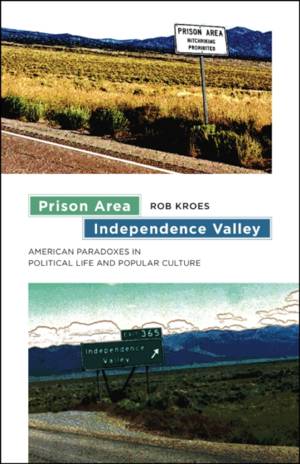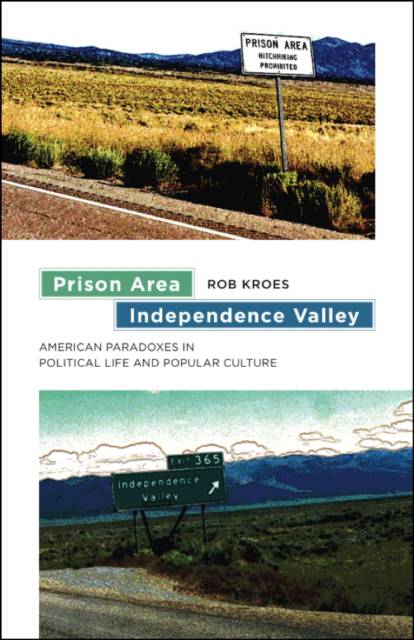
- Retrait gratuit dans votre magasin Club
- 7.000.000 titres dans notre catalogue
- Payer en toute sécurité
- Toujours un magasin près de chez vous
- Retrait gratuit dans votre magasin Club
- 7.000.000 titres dans notre catalogue
- Payer en toute sécurité
- Toujours un magasin près de chez vous
54,95 €
+ 109 points
Description
The study of prisons brought Tocqueville to America. For Rob Kroes, one of Europe's most distinguished authorities on contemporary American culture, it was rather the other way around. For Kroes, it was deep knowledge of American culture that brought him back to America and face to face with a couple of highway signs, Tocquevillian in their portent, that invited motorists to exit from Interstate 80 in Nevada toward a place called Independence Valley and to keep their eyes open for a "Prison Area." In this collection of essays, Kroes invites us to take these two signs seriously for their capacity to deepen our insights into America's cultural contradictions, especially how, after the September 11, 2001, attacks on the World Trade Center and Pentagon, the US government's response altered the meaning of America for Americans and Europeans alike. The author's fascination with the myriad ways in which America changes face, from hard power to soft, from uses of force to the power of entertainment, but always holding the attention of publics across the globe, is what ties his work together. The essays here touch on diverse topics such as photography ("Falling Man" and Holocaust imagery), music (in Broadway and Hollywood musicals), film (Django Unchained), American exceptionalism (in an interesting counter to dog-eared dogma), and the difficulties of the first "white president of color." Like his predecessors, Tocqueville and Johan Huizinga, Kroes offers a clear-eyed assessment of America on the ground, love it or hate it. This readable and sharp-penned critique of America and American culture and power will appeal to Americanists across a broad swath of disciplines. Hardcover is un-jacketed.
Spécifications
Parties prenantes
- Auteur(s) :
- Editeur:
Contenu
- Nombre de pages :
- 208
- Langue:
- Anglais
- Collection :
Caractéristiques
- EAN:
- 9781611687293
- Date de parution :
- 05-05-15
- Format:
- Livre relié
- Format numérique:
- Bibliotheekbinding
- Dimensions :
- 142 mm x 216 mm
- Poids :
- 340 g







